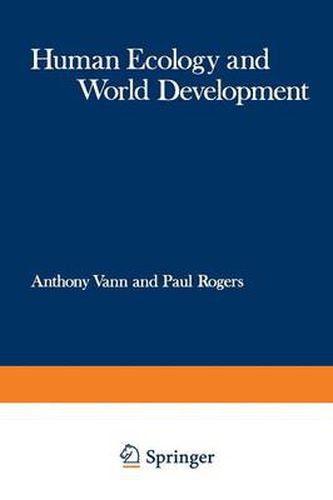Readings Newsletter
Become a Readings Member to make your shopping experience even easier.
Sign in or sign up for free!
You’re not far away from qualifying for FREE standard shipping within Australia
You’ve qualified for FREE standard shipping within Australia
The cart is loading…






This title is printed to order. This book may have been self-published. If so, we cannot guarantee the quality of the content. In the main most books will have gone through the editing process however some may not. We therefore suggest that you be aware of this before ordering this book. If in doubt check either the author or publisher’s details as we are unable to accept any returns unless they are faulty. Please contact us if you have any questions.
Sir Hugh W. Springer This book is the outcome of a symposium organized jointly by the Commonwealth Human Ecology Council and the Hudders field Polytechnic and held in Huddersfield in April 1973. It is the third book to have resulted from the work of the Council and like the other two it illustrates the need for a multi disciplinary approach when examining problems of world development. Commonwealth countries, like many other countries of the world, are becoming increasingly concerned that their processes of development should be so ordered as to preserve or enhance the quality of human life, and should therefore take account not only of economic considerations but also of all the other factors that must be kept in balance if all man’s needs are to be satisfied in due proportion. Human ecology is moving towards a central place in development studies. The Commonwealth Human Ecology Council (CHEC) was set up to find ways of helping Commonwealth countries to cope with human ecological problems by providing an agency that could promote understanding and pool the knowledge and experience available in this field. Its functions are as follows: 1. To encourage the promotion and assist the growth of organizations concerned with human ecology in the countries of the Commonwealth. 2. To sustain a framework of affiliation through a common council. 3. To stimulate interest at all levels in educative activities and provide a centre and clearing house for information.
$9.00 standard shipping within Australia
FREE standard shipping within Australia for orders over $100.00
Express & International shipping calculated at checkout
This title is printed to order. This book may have been self-published. If so, we cannot guarantee the quality of the content. In the main most books will have gone through the editing process however some may not. We therefore suggest that you be aware of this before ordering this book. If in doubt check either the author or publisher’s details as we are unable to accept any returns unless they are faulty. Please contact us if you have any questions.
Sir Hugh W. Springer This book is the outcome of a symposium organized jointly by the Commonwealth Human Ecology Council and the Hudders field Polytechnic and held in Huddersfield in April 1973. It is the third book to have resulted from the work of the Council and like the other two it illustrates the need for a multi disciplinary approach when examining problems of world development. Commonwealth countries, like many other countries of the world, are becoming increasingly concerned that their processes of development should be so ordered as to preserve or enhance the quality of human life, and should therefore take account not only of economic considerations but also of all the other factors that must be kept in balance if all man’s needs are to be satisfied in due proportion. Human ecology is moving towards a central place in development studies. The Commonwealth Human Ecology Council (CHEC) was set up to find ways of helping Commonwealth countries to cope with human ecological problems by providing an agency that could promote understanding and pool the knowledge and experience available in this field. Its functions are as follows: 1. To encourage the promotion and assist the growth of organizations concerned with human ecology in the countries of the Commonwealth. 2. To sustain a framework of affiliation through a common council. 3. To stimulate interest at all levels in educative activities and provide a centre and clearing house for information.